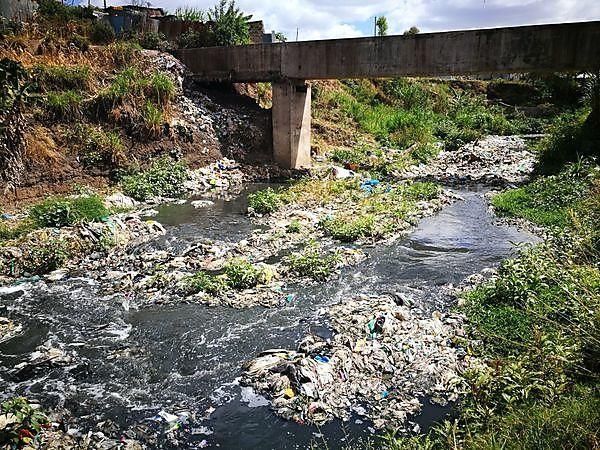Poor sanitation leads to untreated wastewater entering river systems in many countries where industrialisation and urbanisation is not supported by appropriate infrastructure. The lack of regulation and enforcement means toxic chemicals can damage the ecology of the natural environment and pose a risk to human health.
Responsible producers of active pharmaceutical ingredients (APIs) are growing increasingly concerned that current environmental risk assessment methods do not adequately reflect the sources and pathways of APIs to the rivers of developing countries.
Now, new research led by the University of Plymouth suggests that failure to ensure the environmental sustainability of growing patient access to medicines in developing economies could increase the risk of adverse environmental impacts.
Scientists took a series of samples from the Nairobi/Athi river basin in Kenya to assess the source, occurrence, magnitude and risk associated with a range of APIs and other chemicals.
They found elevated levels of drugs including paracetamol, caffeine, sulfamethoxazole and trimethoprim, up to 75km downstream from the urban centre of the city of Nairobi.
Continue reading at University of Plymouth
Image via University of Plymouth


